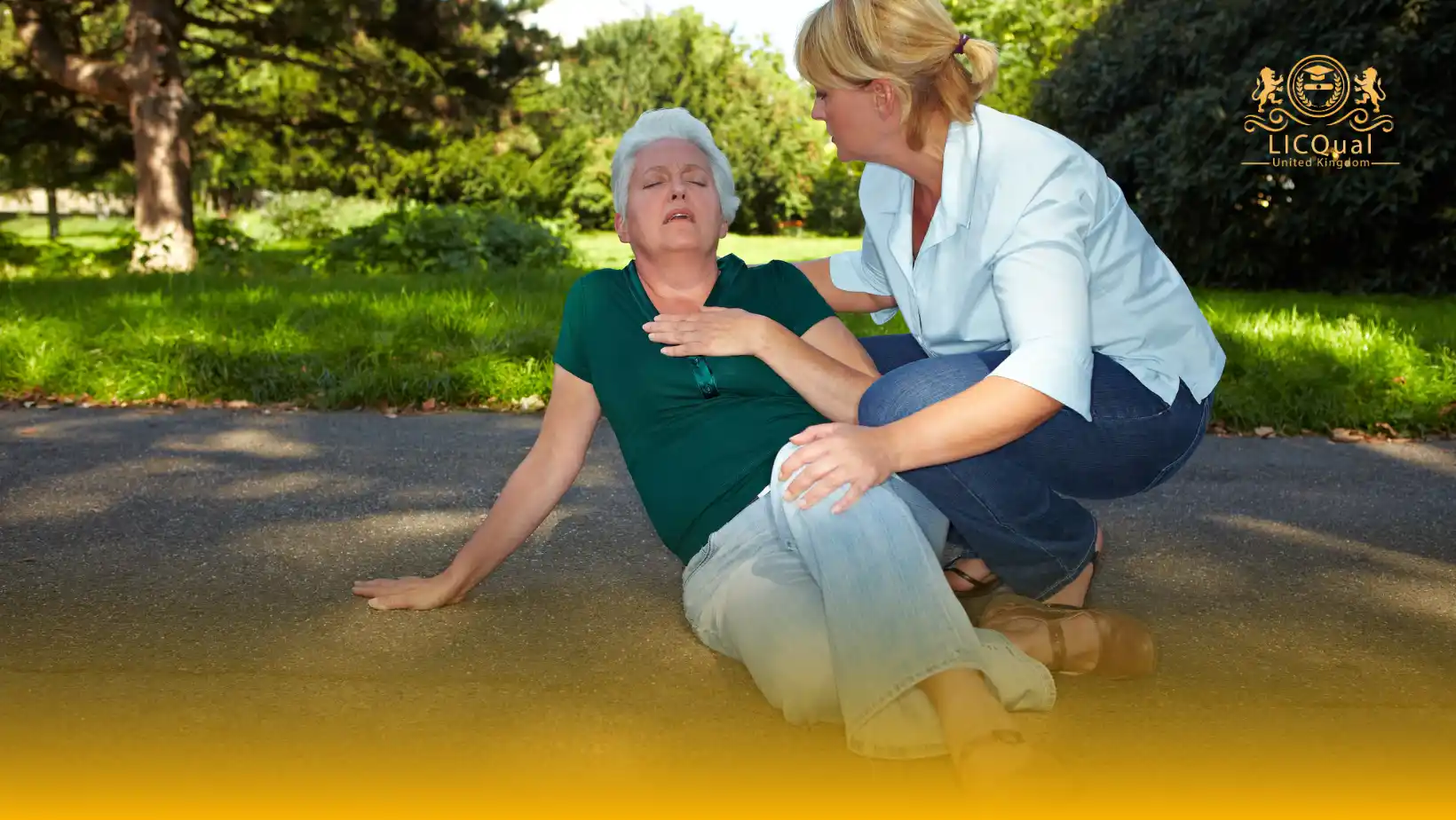The LICQual Level 3 Award in Emergency Outdoor First Aid (EOFA) is a specialized qualification designed for individuals who spend time in remote, outdoor, or challenging environments where access to immediate medical help may be limited. This course equips learners with the vital skills and knowledge required to assess, manage, and provide emergency first aid in outdoor settings such as hiking, camping, adventure sports, forestry, and remote work locations.
Accredited at Level 3, this qualification adheres to international first aid standards and best practices, ensuring participants are prepared to handle emergencies involving trauma, environmental injuries, and sudden illness while waiting for professional medical assistance.
Delivered over approximately 12 guided learning hours, the LICQual Level 3 Award in Emergency Outdoor First Aid offers practical, scenario-based training focusing on real-life outdoor emergencies. Participants will learn to assess and prioritize casualties, manage bleeding, fractures, hypothermia, dehydration, and other common outdoor injuries. The course also covers CPR techniques, managing unconscious casualties, and dealing with environmental hazards such as snake bites and insect stings.
Emphasis is placed on effective communication, risk assessment, and improvised first aid methods suitable for remote locations. Ideal for outdoor professionals, adventure guides, park rangers, and outdoor enthusiasts, this course provides a robust foundation in emergency first aid tailored for the outdoors. Upon completion, learners will receive a Level 3 accredited certificate recognized by employers and regulatory bodies worldwide, enhancing both safety preparedness and career prospects.
Course Overview
Qualification Title
LICQual Level 3 Award in Emergency Outdoor First Aid (EOFA)
Total Units
6
Total Credits
6
GLH
12
Qualification #
LICQ2200603
Qualification Specification
To enroll in the LICQual Level 3 Award in Emergency Outdoor First Aid (EOFA), applicants must meet the following criteria:
|
Qualification# |
Unit Title |
Credits |
GLH |
|---|---|---|---|
|
LICQ2200603-1 |
Principles and Role of Outdoor First Aid |
1 |
2 |
|
LICQ2200603-2 |
Assessing the Outdoor Emergency Scene |
1 |
2 |
|
LICQ2200603-3 |
Managing Unconscious Casualties and Recovery Position |
1 |
2 |
|
LICQ2200603-4 |
Cardiopulmonary Resuscitation (CPR) and AED Use |
1 |
2 |
|
LICQ2200603-5 |
Managing Outdoor Injuries and Medical Emergencies |
1 |
2 |
|
LICQ2200603-6 |
Communication, Incident Reporting, and Legal Considerations |
1 |
2 |
By the end of this course, learners will be able to:
Unit 1: Principles and Role of Outdoor First Aid
- Explain the role and responsibilities of an outdoor first aider.
- Describe the importance and scope of providing first aid in remote and outdoor environments.
Unit 2: Assessing the Outdoor Emergency Scene
- Demonstrate how to safely assess an emergency scene in outdoor or remote settings.
- Prioritize care and determine when to seek professional medical assistance.
Unit 3: Managing Unconscious Casualties and Recovery Position
- Recognize signs and symptoms of unconsciousness in casualties.
- Correctly place adults and children in the recovery position in outdoor environments.
- Monitor casualty condition until emergency help arrives.
Unit 4: Cardiopulmonary Resuscitation (CPR) and AED Use
- Perform effective CPR on adults and children using appropriate techniques.
- Demonstrate the correct use of Automated External Defibrillators (AEDs) in outdoor emergencies.
Unit 5: Managing Outdoor Injuries and Medical Emergencies
- Identify and provide first aid for fractures, bleeding, burns, hypothermia, and dehydration.
- Manage animal bites, stings, and other environmental hazards confidently.
- Explain when to escalate care and seek advanced medical support.
Unit 6: Communication, Incident Reporting, and Legal Considerations
- Communicate clearly and effectively with emergency services and others involved.
- Accurately record details of incidents and first aid administered.
- Explain legal and ethical responsibilities, including consent and safeguarding in outdoor settings.
This course is ideal for:
- Outdoor Professionals:
Adventure guides, park rangers, forestry workers, and outdoor instructors who operate in remote or challenging environments. - Outdoor Enthusiasts:
Hikers, campers, climbers, and anyone who spends significant time in the outdoors seeking to enhance their emergency preparedness. - Remote Workers:
Employees working in isolated locations such as construction sites, farms, or offshore environments. - Sports and Activity Leaders:
Coaches, trainers, and leaders of outdoor sports and recreational activities requiring tailored first aid skills. - Emergency Responders and Volunteers:
Individuals involved in search and rescue, community emergency response teams, or volunteering in outdoor settings. - Healthcare and Safety Professionals:
Those seeking additional qualification in outdoor and wilderness first aid to complement their healthcare or safety roles. - Anyone Interested in Outdoor Safety:
Individuals wanting confidence and skills to respond effectively to emergencies in outdoor or remote settings.
Assessment and Verification
All units within this qualification are subject to internal assessment by the approved centre and external verification by LICQual. The qualification follows a criterion-referenced assessment approach, ensuring that learners meet all specified learning outcomes.
To achieve a ‘Pass’ in any unit, learners must provide valid, sufficient, and authentic evidence demonstrating their attainment of all learning outcomes and compliance with the prescribed assessment criteria. The Assessor is responsible for evaluating the evidence and determining whether the learner has successfully met the required standards.
Assessors must maintain a clear and comprehensive audit trail, documenting the basis for their assessment decisions to ensure transparency, consistency, and compliance with quality assurance requirements.







